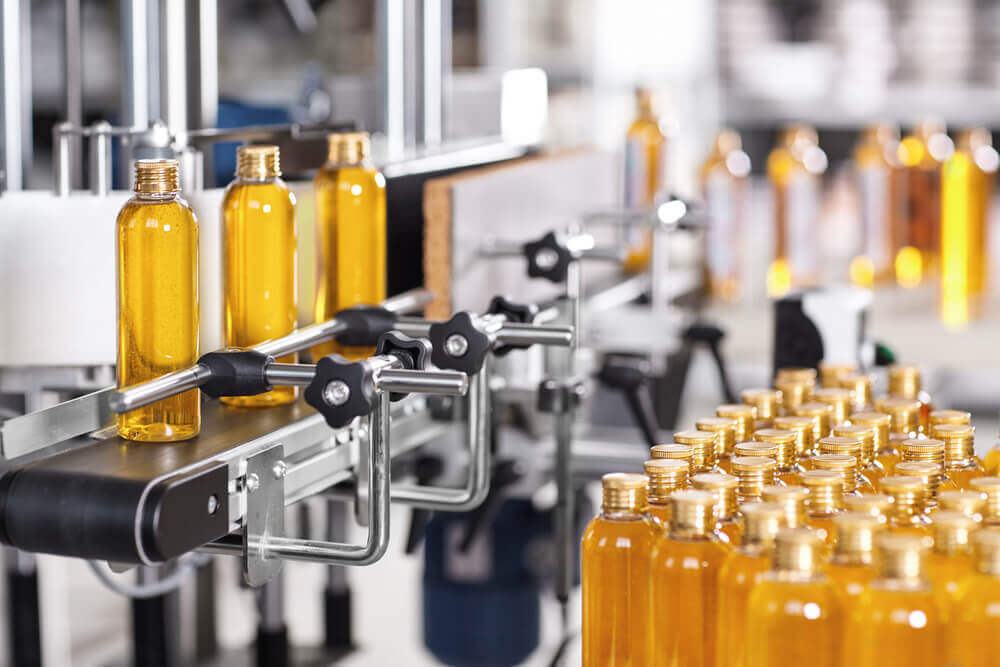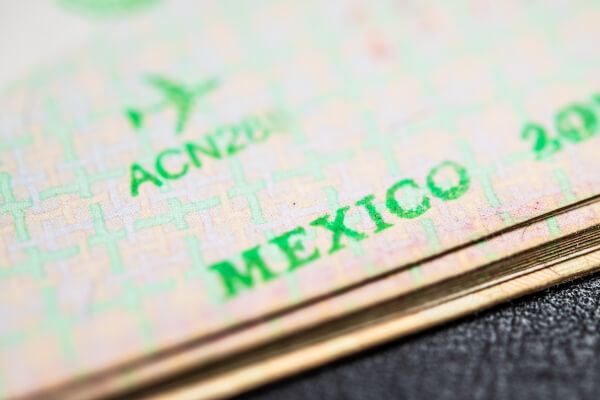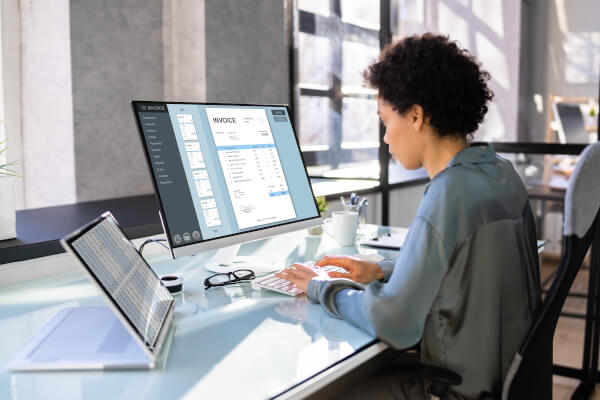How to Hire Independent Contractors in Mexico | Legal Guide & Best Practices
Learn how to hire and pay independent contractors in Mexico. This article also includes an FAQ and best practices about working with contractors in Mexico.

If you’re an entrepreneur with an incredible product idea, you're likely excited about marketing your product. But when it comes to finding a manufacturer to actually bring your product to life, you may feel a little lost.
Let’s look at the differences between manufacturers and supplies and explore how you can manufacture your own product.
We’ll also look at how a Wise Business account may be a good option to make domestic and international transfers instantly, conveniently, and a low-cost.
Send international transfers
with Wise Business >>
Trustpilot: 4.4/5 average rating¹
Over 300k+ businesses customers use Wise globally
| Table of Contents |
|---|
A manufacturer is a company that produces goods, often in large quantities, and sells them to retailers or wholesalers for them to develop them further. Manufacturers can be found in various industries, such as electronics, food and beverage, and furniture, to name a few.
For example, if you have an idea for a new line of clothing, a manufacturer would be the company responsible for actually creating the clothing items, from cutting and sewing the fabric to adding finishing touches like buttons and zippers.
Although these terms can sometimes be used synonymously, the supplier is typically the entity that provides the raw materials or components that a manufacturer needs to produce their finished product.
If we look at our example previously, while the manufacturer is who’s actually making the clothing itself, the supplier might be a company that provides fabrics, buttons, and zippers. Without suppliers, manufacturers would not be able to produce their products, so a reliable supplier is part of the success of a manufacturer.
By definition, it’s quite possible for a manufacturer to also act as a supplier as they offer goods to other businesses. However, a manufacturer and a supplier serve distinct purposes in the production process and roles in the supply chain.
Now we introduce another player in the supply chain - the distributors. They’re responsible for getting the finished product from the manufacturer to the end consumer or vendors. This could be your business or something like a 3PL provider.
The clothing manufacturer who is making the product line would make all the products, and the distributor (in this case, your business) would purchase those shirts and then sell them to consumers.
Ready to go on the hunt for a reliable manufacturer? When starting your search, you’ll quickly realize that there are two options: sourcing domestically or abroad. This might lead you to think, “What are the differences between manufacturers near me and manufacturers abroad?” It’s often a smart idea to have one of both in case there are issues with shipments.
Let’s look at an overview of the perks and downsides of domestic and overseas sourcing.
Local manufacturers are primarily known to ship faster and produce higher-quality goods, but are more expensive.
See the Best Banks for Small Businesses >>
Working with manufacturers abroad can be more cost-effective, but shipping times are often longer, and you’ll have to deal with customs clearance and importing.
Wise Business can help you save big time on international payments.
Wise is not a bank, but a Money Services Business (MSB) provider and a smart alternative to banks. The Wise Business account is designed with international business in mind, and makes it easy to send, hold, and manage business funds in currencies.
Signing up to Wise Business allows access to BatchTransfer which you can use to pay up to 1000 invoices in one go. This is perfect for small businesses that are managing a global team, saving a ton of time and hassle when making payments.
Some key features of Wise Business include:
Mid-market rate: Get the mid-market exchange rate with no hidden fees on international transfers
Global Account: Send money to countries and hold multiple currencies, all in one place. You can also get major currency account details for a one-off fee to receive overseas payments like a local
Access to BatchTransfer: Pay up to 1000 invoices in one click. Save time, money, and stress when you make 1000 payments in one click with BatchTransfer payments. Access to BatchTransfer is free with a Wise Business account
Auto-conversions: Don't like the current currency exchange rate? Set your desired rate, and Wise sends the transfer the moment the rate is met
Free invoicing tool: Generate and send professional invoices
No minimum balance requirements or monthly fees: US-based businesses can open an account for free. Learn more about fees here
Now it’s time to turn your idea into a physical object you can start selling. In this section, we'll show you how to turn your product concept into a real-life, tangible item. From researching manufacturers to communicating your design and placing your order, we'll cover all the steps you need to know to manufacture a product like a pro.
The research process is everything when it comes to choosing the perfect manufacturer. After all, you’re here to make sure that the product you’re selling is fairly priced, good quality, and can be packaged and shipped out nicely.
But before you start looking for a manufacturer, get a clear understanding of what you're trying to get made in the first place. What will the product look like, what materials do you want to use, and what are your production requirements? The more specific you can be about your needs, the easier it will be to find a manufacturer that can meet them.
Once you’ve got that down, where can you start looking for a qualified manufacturer? Here are some places online:
Although best known as a huge marketplace for purchasing cost-effective products, Alibaba is also popular for connecting businesses with manufacturers and suppliers from around the world. It's a great starting point for researching potential manufacturers, as you can browse product categories and filter by supplier location, minimum order quantity, and other criteria. They also make it easy to find quality manufacturers, as you can look for qualifications like being verified (their facility has been visited and evaluated) and having trade assurance (order protection from payment to delivery).
Manufacturer directories are another valuable resource for finding potential manufacturers. These directories list manufacturers by industry and location, making it easy to find companies that specialize in your product type. Examples of popular directories include ThomasNet, MFG.com, and Kompass.
Good old Google can also be a useful tool for your search. Start by searching for keywords related to your product and industry, and narrow your search by location and other criteria.
Word of mouth is another great option, as others can attest to their reliability and trustworthiness. You can ask other business owners or industry contacts for recommendations and referrals that have a proven track record of quality.
NAICS (North American Industry Classification System) codes are standardized codes used to classify businesses by industry. Using NAICS codes can help you identify manufacturers that specialize in your product type. All you have to do is search for relevant codes on the Census Bureau website and use them to narrow your search.³
Making sure you have all the information you need is crucial in fostering a successful partnership with your manufacturer.
Minimum order quantities (MOQs) refer to the minimum number of units a manufacturer is willing to produce in a single order. For instance, if you’re buying sticker packs at $0.10 each and the MOQ is 500, you’ll have to buy a minimum of 500 packs at $50. Depending on the product type and production processes involved, MOQs land on a wide spectrum, so you’ll want to discuss this early on to avoid any bad surprises.
MOQs can sometimes be a sticking point for businesses, as they can impact costs and cash flow. Usually, MOQs are often tied to production efficiencies and economies of scale. The more units you order, the lower the per-unit cost may be. When negotiating, talk about any cost considerations with potential manufacturers, as they might just be willing to adjust MOQs or pricing based on volume.
Cash flow is a huge consideration for any business, and working with manufacturers is no exception. When discussing payment terms with potential manufacturers, be sure to ask about their preferred payment methods and timelines and be clear about your own payment expectations and any constraints you may have. Some manufacturers may even offer flexible payment terms or installment plans.
No matter whether you’re discussing payment, MOQs, or something else altogether, clear and effective communication is a must when working with manufacturers and suppliers. Establish regular communication channels and set expectations for response times. It can also be helpful to have a single point of contact within the manufacturer or supplier's organization.
Communicating your designs goes beyond just talking about them and describing them. Especially if you’re working with international manufacturers that don’t speak the same language, visual aids certainly help. A detailed design specification should include everything from materials to colors to dimensions and can be presented as a detailed sketch or a technical drawing. To take things a step further, you could use 3D modeling software or computer-aided design (CAD) programs to create virtual models and develop that into a physical prototype.
Order samples are a great way to see whether the manufacturer got it right. Did they grasp your idea and produce it how you wanted? Samples can give you a firsthand look at the quality of the work and help you determine if they're the right fit.
If, for some reason, you believe you can get a better deal on your contract with the manufacturer, you can negotiate your terms. But this will start by knowing your priorities. For example, what are your must-haves, and what are you willing to compromise? You’ll also need a solid idea of market pricing and typical contract terms so you can assess whether the offer is reasonable or not.
When it comes to payment, you’ll want to strike a balance between cost and convenience. As traditional methods like wire transfers and credit cards can be expensive and time-consuming, making transfers using online services like Wise Business can offer a faster, more affordable solution.
With Wise Business, you can send transfers to China, Germany, or elsewhere in the local currency, avoiding costly currency conversions and fees.
After the long and arduous process of selecting a manufacturer, it's time to place your order. Once you’ve negotiated the terms of your agreement, you’ll typically sign a purchase agreement and provide a deposit or down payment. The manufacturer will then begin production, and you'll be responsible for paying the remaining balance upon completion of the order.
Congratulations, you've successfully navigated the winding path of finding a manufacturer! As an entrepreneur, the process of manufacturing a product can be both exhilarating and intimidating, but the tips and strategies outlined in this guide will make sure you're well on your way to manifesting your product.
Remember to stay vigilant and keep your priorities in mind, whether you're negotiating minimum order quantities or paying your invoices. So now, one question remains: who will you partner with for your supply?
Interested in learning a little more? Here are some answers to some frequently asked questions.
Luckily, there isn’t just one place to look. To find manufacturers nearby, start by searching online directories, using NAICS codes, or reaching out to industry connections. You can also use search engines like Google to find potential manufacturer websites or consider working with a sourcing agent or third-party logistics provider to help connect you with local manufacturers.
Finding a manufacturer for small business is just like any other sized business and should consider the same aspects such as location, cost, quality, and reputation. However, because small businesses may not be as established, they’ll want to make a more careful and conscious choice. This means taking a closer look at minimum order quantities and where they are located, as they might not have the funds to work with more than one manufacturer.
Before approaching a manufacturer, prepare a list of questions and have a clear idea of the product you want to create, your target market, and your budget. You should also do research on the manufacturing process, the materials needed, and the potential costs involved. Having this information in hand can help you have a more productive and successful conversation with potential manufacturers.
The range of products that can be manufactured is virtually limitless as long as there is a market demand and the resources to make them. Choosing what to manufacture depends on your interests and what will ultimately sell so your business can make a profit.
Manufacturers are companies that make goods from raw materials or components, while vendors are companies that sell products to customers but might not necessarily play a part in the production aspect.
There isn’t much of a difference in finding manufacturers in the U.S. and elsewhere. As a starting point, you can use online directories such as ThomasNet or MFG.com or even search for suppliers on social media platforms like LinkedIn or Facebook.
Sources:
1.https://www.trustpilot.com/review/wise.com
2.https://www.businessnewsdaily.com/8820-how-to-find-factory.html
3.https://www.census.gov/naics/
*Please see terms of use and product availability for your region or visit Wise fees and pricing for the most up to date pricing and fee information.
This publication is provided for general information purposes and does not constitute legal, tax or other professional advice from Wise Payments Limited or its subsidiaries and its affiliates, and it is not intended as a substitute for obtaining advice from a financial advisor or any other professional.
We make no representations, warranties or guarantees, whether expressed or implied, that the content in the publication is accurate, complete or up to date.

Learn how to hire and pay independent contractors in Mexico. This article also includes an FAQ and best practices about working with contractors in Mexico.

Learn how to navigate the overseas worker recruitment. Discover legal requirements, sourcing strategies, visa compliance, and tips for international hiring.

Paying overseas vendors is common, but the hidden costs of B2B cross-border payments aren’t. Learn how to simplify international business payments today.

B2B payment processing doesn’t have to be hard. Learn how growing businesses can simplify cross-border transactions, streamline invoicing and get paid faster.

Discover strategies to enhance B2B payment security, reduce fraud risk, and protect cash flow using secure digital payment methods and automated workflows.

B2B payment automation helps small businesses save time and reduce costs. Read about how automation replaces manual tasks and boosts accuracy and cash flow.